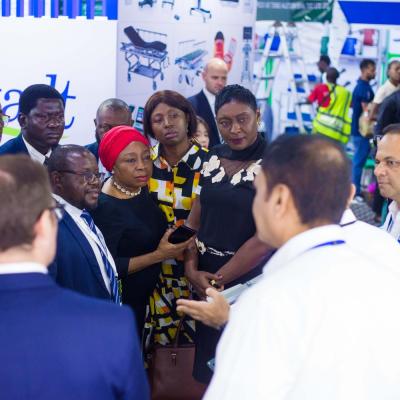Frontpage News (3259)
 Childhood mental illness and obesity are significant public health concerns in the US. Since they start in childhood, preventive and early intervention approaches are needed. Pet dogs have been linked with health benefits for adults, as promoted by the US Public Health Service (USPHS). In Australia and the UK, dog ownership has been linked with increased physical activity among children aged 5-12 years and healthier body mass index (BMI) in those aged 5-6 years, due to walking and active play. Such data is lacking in the US, so more evidence is needed to support pet ownership as a health strategy.
Childhood mental illness and obesity are significant public health concerns in the US. Since they start in childhood, preventive and early intervention approaches are needed. Pet dogs have been linked with health benefits for adults, as promoted by the US Public Health Service (USPHS). In Australia and the UK, dog ownership has been linked with increased physical activity among children aged 5-12 years and healthier body mass index (BMI) in those aged 5-6 years, due to walking and active play. Such data is lacking in the US, so more evidence is needed to support pet ownership as a health strategy.
How can pets help mental health: Pets can stimulate conversation, creating an ice-breaking effect that alleviates social anxiety. Dogs also tend to follow human communicative cues, which could help in emotional development. Children aged 7-8 years have previously ranked pets higher than humans as providers of comfort and self-esteem, and as confidants. Animal-assisted therapy (AAT) with dogs reduces anxiety and arousal, alleviates separation anxiety and enhances attachment in children, thereby improving mental health and reducing developmental disorders.
 The National Agancy for the Control of AIDS (NACA) says it is worried that governments in Nigeria have left HIV treatment and interventions in the country in the hands of donors. NACA’s Director of Policy and Strategy, Alex Ogundipe told newsmen at a rally commemorating 2015 World AIDS day in Abuja that they are working to get the local, state and federal governments to see HIV as a problem of the people of Nigeria and not leave it in the hand of donors. “Nigeria has left HIV treatment and interventions in the hand of donors. It is not right and that is why we are unable to provide the response to everybody that should be on treatment right now,” Ogundipe said.
The National Agancy for the Control of AIDS (NACA) says it is worried that governments in Nigeria have left HIV treatment and interventions in the country in the hands of donors. NACA’s Director of Policy and Strategy, Alex Ogundipe told newsmen at a rally commemorating 2015 World AIDS day in Abuja that they are working to get the local, state and federal governments to see HIV as a problem of the people of Nigeria and not leave it in the hand of donors. “Nigeria has left HIV treatment and interventions in the hand of donors. It is not right and that is why we are unable to provide the response to everybody that should be on treatment right now,” Ogundipe said.
He said that “local governments should see people that are positive as those who can still contribute to development of this country and provide them the best health care services.” For the country director of UNAID, Dr Bilali Camara, Nigeria should domesticate her fight against HIV which means owing and leading the response to disease. He said “This means investing in the issue and we calling on the Nigeria government to do more and to see how it can match the international resources coming into this country with local response. This will trigger an impactful response which can end the HIV epidemic by 2030.”
 A public health expert, Prof. Adefunke Oyemade, on Tuesday urged the three tiers of government to improve on the existing facilities at juvenile homes and make them more habitable. Oyemade told the News Agency of Nigeria (NAN) in Lagos that fostering a conducive environment was critical to the prevention of deprived children from becoming juvenile delinquents. She said: “The health of a child is to a large extent, influenced by his environment, that environment is the society, the family, most essentially the mother.
A public health expert, Prof. Adefunke Oyemade, on Tuesday urged the three tiers of government to improve on the existing facilities at juvenile homes and make them more habitable. Oyemade told the News Agency of Nigeria (NAN) in Lagos that fostering a conducive environment was critical to the prevention of deprived children from becoming juvenile delinquents. She said: “The health of a child is to a large extent, influenced by his environment, that environment is the society, the family, most essentially the mother.
“Maternal deprivation like most medical concepts have evolved over a period of years and it involves institutionalisation, mother-child separation, multiple mothering and distortion in the quality of care. “Institutional child may have a normal physical development but becomes mentally retarded because of lack of social stimulation and individual attention. “With a good environment and a loving substitute mother, a remarkable improvement can be achieved in a child’s social and mental development. “The effects may be reversed if relief from deprivation is instituted early enough
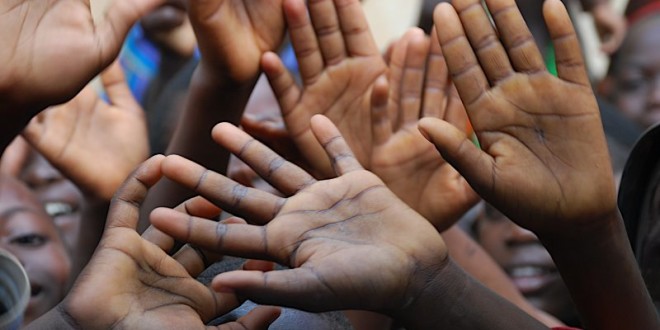 Technology firm ChitHub Medical Solutions has launched a phone-a-doctor service which is a call operator platform that allows Nigerians to lay their health concerns before a doctor by simply dialling 0700D0CTORS. ChitHub chief executive officer Michael Agbogo, who conceived the platform while watching a phone-in programme on a business trip to South Africa, said, the use of technology and GSM would “allow people in rural areas to have access to the same level of health care you get in cities. The major problem we have in health care is it bring available, affordable and accessible to the people, he said at the launch of 0700DOCTORS in Abuja.
Technology firm ChitHub Medical Solutions has launched a phone-a-doctor service which is a call operator platform that allows Nigerians to lay their health concerns before a doctor by simply dialling 0700D0CTORS. ChitHub chief executive officer Michael Agbogo, who conceived the platform while watching a phone-in programme on a business trip to South Africa, said, the use of technology and GSM would “allow people in rural areas to have access to the same level of health care you get in cities. The major problem we have in health care is it bring available, affordable and accessible to the people, he said at the launch of 0700DOCTORS in Abuja.
A call to the line puts patients in touch with any available expert in a standing pool of general practitioners and consultants who save patient history to profiles and can diagnose conditions, send prescriptions to patients by SMS or push them to pharmacies, and refer patients to nearest hospitals for advanced care.
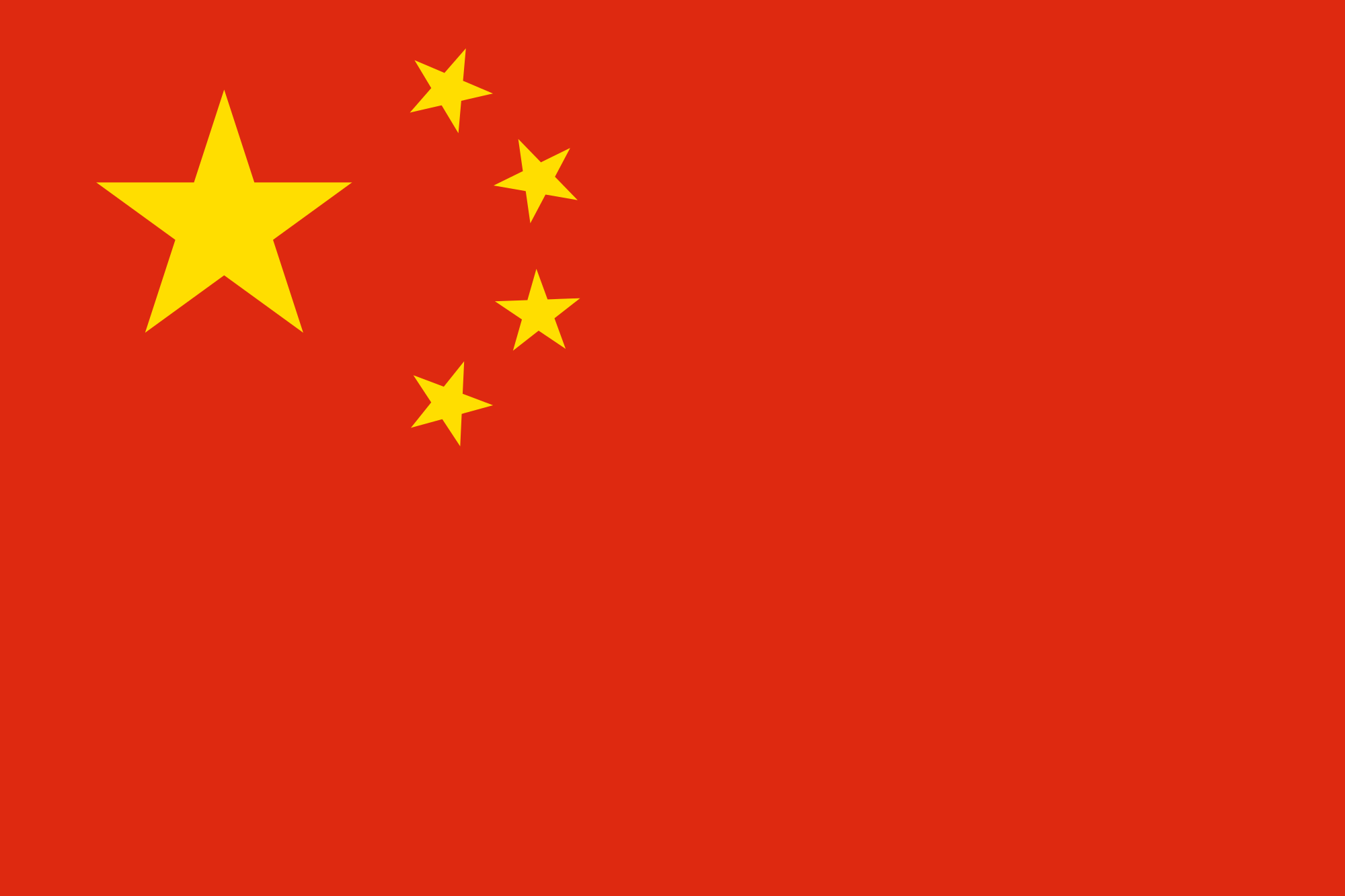 The Chinese National Center for AIDS and Sexually Transmitted Disease Control and Prevention, said most foreign patients were no longer covered by China’s AIDS intervention system. Wu Zunyou, Head of the National Center, said on Wednesday in Beijing that the measure included a patient’s follow-up monitoring network and free antiviral medication He said this had become imperative due to limited funding, therefore, the government’s anti-AIDS efforts, particularly free medication, would focus only on Chinese citizens.
The Chinese National Center for AIDS and Sexually Transmitted Disease Control and Prevention, said most foreign patients were no longer covered by China’s AIDS intervention system. Wu Zunyou, Head of the National Center, said on Wednesday in Beijing that the measure included a patient’s follow-up monitoring network and free antiviral medication He said this had become imperative due to limited funding, therefore, the government’s anti-AIDS efforts, particularly free medication, would focus only on Chinese citizens.
Zunyou said more than 1,800 HIV/AIDS cases involving people from outside the Chinese mainland-mostly foreigners-were diagnosed between January and October. “Such cases are continuing to rise due to increased international exchanges. “The latest figure compares with 1,500 cases recorded in July last year covering the previous three years. “At least 9,000 foreigners have been diagnosed with HIV/AIDS on the mainland since the center’s epidemic surveillance system started operating in 2005,’’ he said.
 French National Institute for Preventive Archaeological Research, said that archaeologists discovered five heart-shaped urns made of lead, each containing an embalmed human heart. Rozenn Colleter, Head of the institute, disclosed this on Thursday while presenting the findings at a meeting of the Radiological Society of North America in Chicago. Collter, who was also the leader of the research group, said the leads were found in the ruins of a medieval convent in the French city of Rennes.
French National Institute for Preventive Archaeological Research, said that archaeologists discovered five heart-shaped urns made of lead, each containing an embalmed human heart. Rozenn Colleter, Head of the institute, disclosed this on Thursday while presenting the findings at a meeting of the Radiological Society of North America in Chicago. Collter, who was also the leader of the research group, said the leads were found in the ruins of a medieval convent in the French city of Rennes.
He said roughly four centuries after they were buried, researchers had used modern science to study the old hearts. “It turns out three of them bore tell-tale signs of a heart disease very common today. “Every heart was different and revealed its share of surprises. “Four of these hearts are very well preserved. It is very rare in archaeology to work on organic materials. The prospects are very exciting,’’ he said. Colleter said one of the hearts appeared healthy, with no evidence of disease.
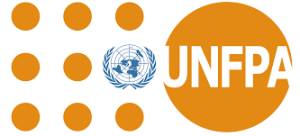 The UN Population Fund (UNFPA) had assisted in the provision of reproductive health services in 176 health facilities in the North-Eastern part of the country. The Fund’s Country Representative in Nigeria, Mrs Ratidzai Ndhlovu, made the disclosure at a meeting to review the health sector humanitarian response in the North-East on Thursday in Abuja. Ndhlovu said the meeting was aimed at addressing the health needs of the people. The News Agency of Nigeria (NAN) reports that the meeting, co-organised by the Federal Ministry of Health, the UNFPA and the Japanese Government is to ascertain the current health needs, as well as priorities for the North-Eastern states in 2016.
The UN Population Fund (UNFPA) had assisted in the provision of reproductive health services in 176 health facilities in the North-Eastern part of the country. The Fund’s Country Representative in Nigeria, Mrs Ratidzai Ndhlovu, made the disclosure at a meeting to review the health sector humanitarian response in the North-East on Thursday in Abuja. Ndhlovu said the meeting was aimed at addressing the health needs of the people. The News Agency of Nigeria (NAN) reports that the meeting, co-organised by the Federal Ministry of Health, the UNFPA and the Japanese Government is to ascertain the current health needs, as well as priorities for the North-Eastern states in 2016.
It was also to review the implementation of reproductive health services in conflict-affected communities in the North-East. She described sexual reproductive health problem as leading cause of women’s ill health and death worldwide, adding that the Fund’s interventions were aimed at decreasing maternal mortality and morbidity in conflict areas. The country representative said 50,000 women benefitted from UNFPA’s intervention as they were delivered of their babies at assisted health facilities.
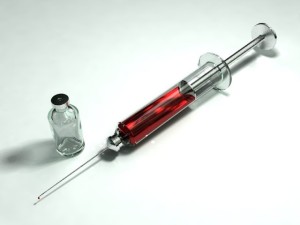 An unlicensed Cambodian doctor has been jailed for 25 years after being convicted of infecting more than 100 people with HIV, according to Cambodian media reports. Yem Chroeum was found guilty of infecting people in northwestern Battambang province with HIV by reusing dirty needles. The Phnom Penh Post reported Thursday. The case has highlighted a problem in many parts of rural Cambodia, where illegal doctors are often the only option for medical care.
An unlicensed Cambodian doctor has been jailed for 25 years after being convicted of infecting more than 100 people with HIV, according to Cambodian media reports. Yem Chroeum was found guilty of infecting people in northwestern Battambang province with HIV by reusing dirty needles. The Phnom Penh Post reported Thursday. The case has highlighted a problem in many parts of rural Cambodia, where illegal doctors are often the only option for medical care.
According to the Ministry of Health, almost 4,000 illegal health-service providers are still operating in the country. Panicked residents of Rokar village, where Chroeum was based, sought testing after reports of infections emerged in December 2014. Charges against the illegal doctor included intentionally transmitting the HIV virus and running a clinic without permission from the Ministry of Health.
Nigeria Nurses and Midwives may commence strike over unpaid uniform allowance
 The National Association of Nigeria Nurses and Midwives, NANSM, Federal Health institutions’ sector has alerted its members to be at alert and await further directives as the Association is set to embark on a nationwide strike action over unpaid allowances. The Association which is determined to ground services in the nation’s health sector accused some Chief Medical Directors and Medical Directors, whom they say deliberately refuse to pay uniform allowances to nurses and midwives “against the provision of the Civil Service Rule No. 130127.
The National Association of Nigeria Nurses and Midwives, NANSM, Federal Health institutions’ sector has alerted its members to be at alert and await further directives as the Association is set to embark on a nationwide strike action over unpaid allowances. The Association which is determined to ground services in the nation’s health sector accused some Chief Medical Directors and Medical Directors, whom they say deliberately refuse to pay uniform allowances to nurses and midwives “against the provision of the Civil Service Rule No. 130127.
In a communiqué issued at the end of its 30th Annual Scientific Conference, signed by its National Chairman, Mr. Nana Takai and National Secretary, Mr. Gambo Danfulani and made available to journalists in Jos, the duo also asked President Muhammadu Buhari to declare an emergency in the health sector, especially in areas of staffing, training, retraining and equipping health institutions with modern facilities.
 Liberia on Friday commenced a new countdown to declaring itself of Ebola free for a third time, health officials said. The countdown comes after the last two known Ebola cases were released from hospital on Thursday. In recent months, Liberia had been the only country in West Africa with known cases as neighboring Sierra Leone was declared Ebola-free in November while Guinea’s last known case recovered two weeks ago. “There are no cases in the ETUs (Ebola Treatment Units) in the entire Republic of Liberia,” said Tolbert Nyenswah, Head of Liberia’s Ebola response, adding that Ebola safety procedures remained in place.
Liberia on Friday commenced a new countdown to declaring itself of Ebola free for a third time, health officials said. The countdown comes after the last two known Ebola cases were released from hospital on Thursday. In recent months, Liberia had been the only country in West Africa with known cases as neighboring Sierra Leone was declared Ebola-free in November while Guinea’s last known case recovered two weeks ago. “There are no cases in the ETUs (Ebola Treatment Units) in the entire Republic of Liberia,” said Tolbert Nyenswah, Head of Liberia’s Ebola response, adding that Ebola safety procedures remained in place.
The two patients released from the Paynesville ETU are the father and younger brother of the presumed index case, a 15-year-old boy named Nathan Gbotoe from a suburb of the capital Monrovia who died from the disease late November. However, new cases could still emerge in Liberia since there are 165 contacts still under quarantine, of which more than 30 are deemed high risk, health officials told newsmen. Nyenswah say the contacts under surveillance have completed 14 of their obligatory 21-day monitoring – a period that corresponds with the typical incubation period of the virus.
More...
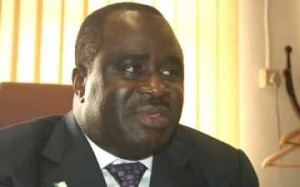 In a renewed offensive against menace of counterfeit drugs and other regulated products, the National Agency for Food and Drug administration and Control (NAFDAC) has destroyed fake drugs worth over N15million in Birnin Kebbi, Kebbi state. Director General of NAFDAC, Dr. Paul Orhii who was represented by the Federal Capital Territory coordinator of the Agency, Mr. Abdulsallami Ozigis while carrying out the destruction exercise in company of community leaders and security agencies, said the exercise had become necessary to prevent the offensive products from making re-entry into the market and to raise public awareness on the dangers of counterfeit regulated products.
In a renewed offensive against menace of counterfeit drugs and other regulated products, the National Agency for Food and Drug administration and Control (NAFDAC) has destroyed fake drugs worth over N15million in Birnin Kebbi, Kebbi state. Director General of NAFDAC, Dr. Paul Orhii who was represented by the Federal Capital Territory coordinator of the Agency, Mr. Abdulsallami Ozigis while carrying out the destruction exercise in company of community leaders and security agencies, said the exercise had become necessary to prevent the offensive products from making re-entry into the market and to raise public awareness on the dangers of counterfeit regulated products.
His words “the essence of destruction is to invariably prevent the seized products from finding their way back to the market. This will eliminate the dangers associated with the consumption of the spurious products to the consuming society”. Speaking further, Mr. Ozigis said eliminating the undesired regulated products from circulation will assist the medical practitioners and other stakeholders to render qualitative service to Nigerians and guarantee public safety.
 In providing affordable and accessible Primary Health Care system in the country, the federal government is brainstorming and finding suitable ways in which every Nigerian will be exposed to basic health care facilities at almost no cost and further discourage medical tourism. This will include collaborating with states and local governments and ensuring that all tiers of government put in resources and build primary health care agencies. This was stated, Tuesday, by the minister of health, Prof Isaac Adewole at the first annual lecture of the National Primary Health Care Development Agency (NPHCDA) and with the topic “Primary Health Care. Realities, Challenges, and the Way Forward.”
In providing affordable and accessible Primary Health Care system in the country, the federal government is brainstorming and finding suitable ways in which every Nigerian will be exposed to basic health care facilities at almost no cost and further discourage medical tourism. This will include collaborating with states and local governments and ensuring that all tiers of government put in resources and build primary health care agencies. This was stated, Tuesday, by the minister of health, Prof Isaac Adewole at the first annual lecture of the National Primary Health Care Development Agency (NPHCDA) and with the topic “Primary Health Care. Realities, Challenges, and the Way Forward.”
He said so much concentration has been given to the tertiary health sector when it handles only 15% of healthcare delivery in the country and as such, all hands must be on deck as Nigeria needs a primary healthcare that will take care of everyone. “We will see that not every sick Nigerian will take the next available flight out of this country. We have some of the best brains that can look after you and use the facilities that are available to deliver good care to Nigerians. ”
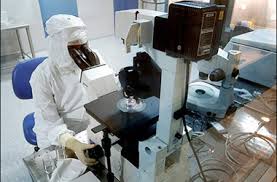 Medical laboratory practitioners in the country have been urged to as a matter of urgency embrace the concept of External Quality Assurance (EQA) in order to improve the quality of service they render to the patients. Speaking at a stakeholders forum involving members of the Guild of Medical Laboratory Directors in Abuja, the Registrar/CEO, Medical Laboratory Science Council of Nigeria, Prof Anthony O. Emeribe noted that it is only when a laboratory facility can subject its test results to external review that it can be taken seriously.
Medical laboratory practitioners in the country have been urged to as a matter of urgency embrace the concept of External Quality Assurance (EQA) in order to improve the quality of service they render to the patients. Speaking at a stakeholders forum involving members of the Guild of Medical Laboratory Directors in Abuja, the Registrar/CEO, Medical Laboratory Science Council of Nigeria, Prof Anthony O. Emeribe noted that it is only when a laboratory facility can subject its test results to external review that it can be taken seriously.
According to him, adopting the mechanism of EQA, which is at the heart of Quality Management System (QMS) had become imperative in order to up scale the quality of laboratory testing and to help safeguard the lives of patients, whose confidence in the health laboratory system he described as indispensable. Emeribe expressed regret that some medical laboratories are still not focussing on generating accurate, reliable and reproducible test results, adding that henceforth, any facility that relegates best practices to the back burner would incur the wrath of the Council.
 The Federal Government on Wednesday said it has stopped the commercialisation of Niprisan, a drug used to manage sickle-cell anaemia in the country. Prof. Karniyus Gamaniel, the Director-General, National Institute of Pharmaceutical Research Development (NIPRD), told the News Agency of Nigeria (NAN) in Abuja. He said that the drug was currently under the authority of the Federal Government, hence it was being produced and distributed solely by the Institute. He added that the move was part of the social corporate responsibility of government to citizens.
The Federal Government on Wednesday said it has stopped the commercialisation of Niprisan, a drug used to manage sickle-cell anaemia in the country. Prof. Karniyus Gamaniel, the Director-General, National Institute of Pharmaceutical Research Development (NIPRD), told the News Agency of Nigeria (NAN) in Abuja. He said that the drug was currently under the authority of the Federal Government, hence it was being produced and distributed solely by the Institute. He added that the move was part of the social corporate responsibility of government to citizens.
He explained that “we give people who come to the Institute the sickle-cell drug; it is no longer sold in pharmacies; you only get it at the Institute. “The Institute only engages in social production of the drug as it is under the authority of government now as pronounced by the Minister of Health. “The production is part of the corporate social responsibility of government; those that need it can get it,” Gamaniel said. He described sickle-cell anaemia as a genetic disease which occurred due to the presence of an abnormal form of haemoglobin in the red blood cell called haemoglobin S instead of haemoglobin A.


